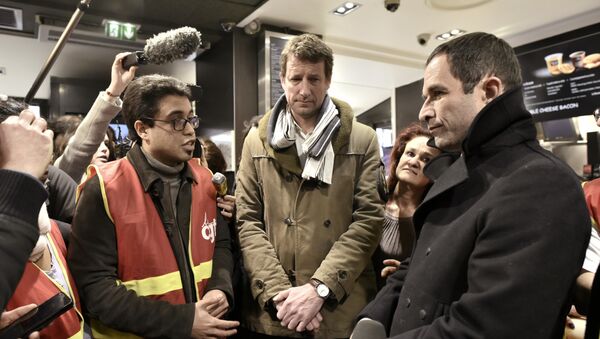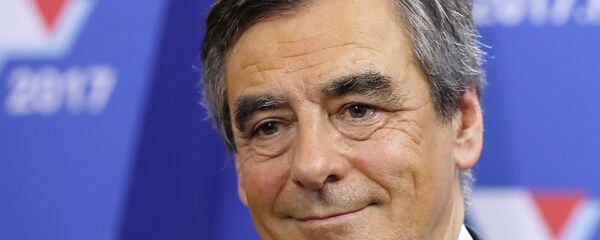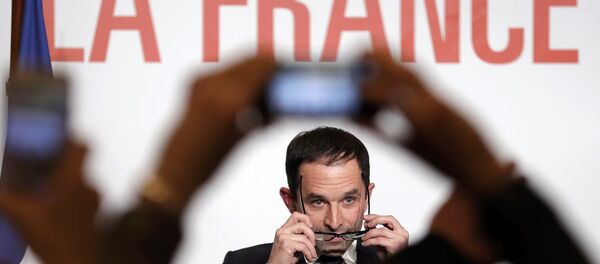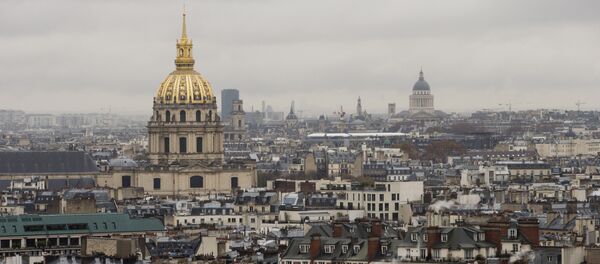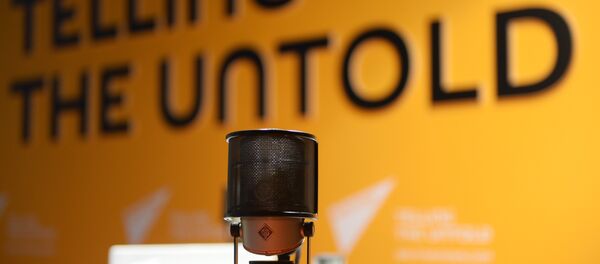Joining forces, the moderate left now hopes that Hamon will be able to catch up to polling leaders, including the National Front's Marine Le Pen, the Republicans' Francois Fillon, and En Marche's Emmanuel Macron, each of whom are between 4.5-12 percentage points ahead of Hamon and the Socialists.
Russian observers first took note of Hamon's anti-Russian stance during his party's primary campaign, which concluded in January, when he defeated former Prime Minister Manuel Valls and secured his party's nomination.
During the campaign, Hamon repeatedly accused President Francois Hollande, a fellow Socialist, of appeasing Russia. "This attitude of complacency with regard to Vladimir Putin – I cannot understand it! We're talking about an aggressive imperialism by the Russians, and we should respond with firmness, not complacency," Hamon said during one primary event.
As for Jadot, he too has been just as firm an opponent to normalizing relations with Moscow. Last fall, in his capacity as an MP in the European Parliament, the politician demanded that President Hollande cancel Russian President Vladimir Putin's visit to Paris. Jadot's recommendations were taken into account, the meeting at Elysee Palace was shortened, and this resulted in Moscow cancelling the visit. During that campaign, the Green politician called Putin the "butcher of the Syrian city of Aleppo."
As Gashkov pointed out, "the unfriendly attitude toward Moscow is well within the tradition of the Socialist Party and the Greens. Russia is seen by France's moderate left as a country of the right wing political choice, and a reminder of the potential alternative for France itself – in the form of a victory by the National Front candidate Marine Le Pen."
Among the left, only the far-left Unsubmissive France Party and their candidate Jean-Luc Melenchon "retain an amicable attitude toward Moscow, with some reservations." As per the tradition of the far left, Melenchon is also skeptical toward the EU and globalization, but is skeptical of National Front's position on immigration.
Hamon, the journalist recalled, has considered Muslims constituting the basis of his electorate throughout much of his career. "He was elected to France's parliament from Trappes, a majority of whose residents are Muslims. In a recent scandal surrounding the coffee shops of Saint-Denis (where Muslim owners didn't allow women into their shops), Hamon was perhaps the only one who took the side of the faithful. The unconventional position turned out extremely successful politically; Muslim votes allowed Hamon to achieve victory in the primaries."
Furthermore, Gashkov noted, "Hamon is likely appealing to Muslim voters with his key economic program – the introduction of a guaranteed monthly income. Many of France's 6-8 million Muslims are unemployed. The opportunity to increase their income without employment is seen as an attractive alternative by this section of the population."
Ultimately, Gashkov noted that in their competition for the same electorate, Hamon and Macron "have to share not only common assets, but also a common liability. Both men served in the Hollande administration at the ministerial rank, and thus participated in the construction of a new French socialism, or putting it more mildly, 'in Hollandeism'. The result of the president's efforts has disappointed the vast majority of French voters – not least because Hollande could not keep his campaign promises. Whether or not his colleagues will be more effective remains to be seen – on the condition that France again opts for the left in this year's elections."

